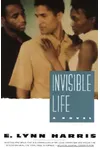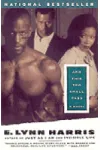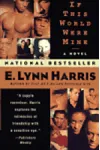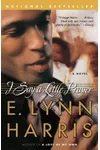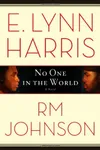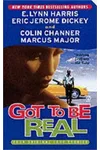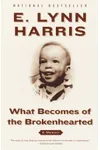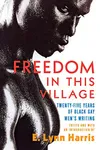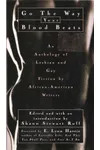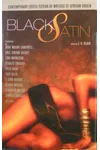Picture a storyteller who dared to shine a light on the hidden lives of African-American men, weaving tales of love, identity, and courage—meet E. Lynn Harris! Born in 1955, this trailblazing author broke barriers with his heartfelt novels, becoming a New York Times bestselling sensation. His stories, rich with emotion and authenticity, captivated readers and reshaped contemporary fiction.
Harris’s journey wasn’t easy, but his resilience and passion for storytelling made him a literary icon. From a challenging childhood to self-publishing his debut novel, he carved a unique path, giving voice to the marginalized and forever changing the landscape of African-American literature.
The Making of E. Lynn Harris
Born on June 20, 1955, in Flint, Michigan, Everette Lynn Harris faced a tough upbringing in Little Rock, Arkansas. Raised by his mother, Etta Mae Williams, and enduring abuse from his stepfather, Harris found solace in books and imagination. At the University of Arkansas, he broke ground as the first Black male cheerleader and yearbook editor, graduating with honors in journalism. After years as a computer salesman for companies like IBM, Harris’s true calling emerged when he penned his first novel, Invisible Life, self-publishing it in 1991 after countless rejections.
E. Lynn Harris’s Unforgettable Stories
Harris’s novels are vibrant, emotional journeys into the lives of African-American men navigating bisexuality and homosexuality, often living 'on the down low.' His debut, Invisible Life (1994), follows Raymond Tyler, a young lawyer grappling with his attraction to men and women. Its raw honesty and compelling narrative struck a chord, leading to a three-book deal with Anchor Books. The sequel, Just As I Am (1994), won Blackboard’s Novel of the Year and deepened Raymond’s story, blending romance with social commentary.
If This World Were Mine (1997), a James Baldwin Award winner, explores friendship and racism through a group of gay and straight friends, showcasing Harris’s knack for complex characters. His memoir, What Becomes of the Brokenhearted (2003), offers a candid look at his struggles with sexuality and depression, resonating with readers for its vulnerability. Harris’s style—infused with vernacular, humor, and poignant themes—made his stories accessible and unforgettable, earning him a devoted following, especially among African-American women.
His final novel, Basketball Jones (2009), dives into the glamorous yet secretive world of a basketball star’s lover, cementing Harris’s ability to tackle taboo topics with empathy. With ten consecutive New York Times bestsellers and over four million books in print, Harris’s work redefined African-American fiction.
Why E. Lynn Harris Matters
E. Lynn Harris didn’t just write books; he sparked a dialogue about sexuality in the Black community, challenging taboos with grace and honesty. His novels humanized gay and bisexual men, offering representation that was rare in the 1990s. By crossing over to mainstream audiences, particularly straight Black women, Harris broadened perspectives and fostered empathy. His legacy lives on through the E. Lynn Harris Better Days Literary Foundation, supporting aspiring writers, and awards like the Arkansas Black Hall of Fame induction. Though he passed away in 2009, Harris’s stories continue to inspire and empower.
- Born: June 20, 1955, Flint, Michigan
- Key Works: Invisible Life, Just As I Am, If This World Were Mine, What Becomes of the Brokenhearted
- Awards: James Baldwin Award, Arkansas Black Hall of Fame
- Died: July 23, 2009, Los Angeles, California
Snag Invisible Life and dive into E. Lynn Harris’s bold, heartfelt world of love and identity!

